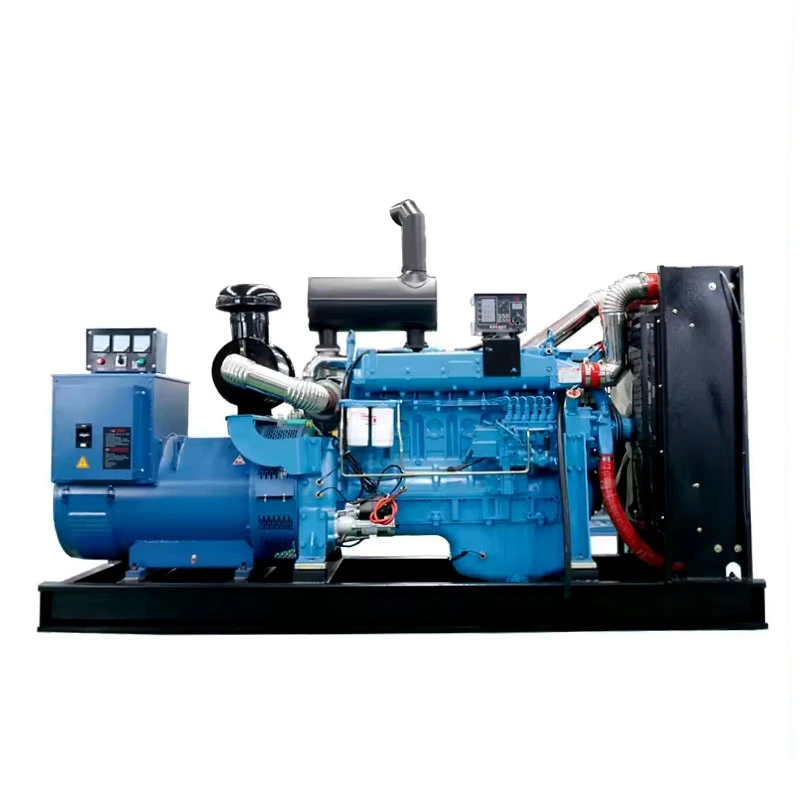The Ultimate Guide to Diesel Generators for Cold Weather Conditions

Introduction
Diesel generators are essential tools for providing backup power in various situations, especially in cold weather conditions where power outages are more common. These generators are known for their reliability, efficiency, and ability to operate in harsh environments. In this comprehensive guide, we will discuss everything you need to know about diesel generators for cold weather, including their features, benefits, maintenance tips, and best practices.
1. Understanding Diesel Generators
Diesel generators are devices that convert diesel fuel into electrical energy through the process of combustion. They consist of an engine, an alternator, a fuel system, and a cooling system. These generators are commonly used as backup power sources in residential, commercial, and industrial settings.
One of the key advantages of diesel generators is their fuel efficiency and cost-effectiveness. Diesel fuel is less expensive than gasoline and can provide more power output per gallon, making diesel generators a popular choice for applications that require continuous or standby power.
2. Features of Diesel Generators for Cold Weather
Cold weather conditions can pose unique challenges for diesel generators, such as decreased fuel efficiency, reduced battery performance, and increased risk of engine damage due to freezing temperatures. To ensure reliable operation in cold weather, diesel generators are equipped with various features and components designed to withstand low temperatures. Some of these features include:
- Cold weather starting kits: These kits include components such as block heaters, battery warmers, and oil heaters that help improve the cold-start performance of diesel generators.
- Insulated enclosures: Diesel generators for cold weather are often housed in insulated enclosures to protect them from extreme temperatures and prevent heat loss.
- Fuel heaters: Fuel heaters are used to prevent diesel fuel from gelling in cold weather, which can clog the fuel system and cause engine failure.
- Low-temperature coolant: Some diesel generators are equipped with coolant systems that are designed to operate effectively in cold weather conditions, preventing the engine from overheating or freezing.
- Automatic voltage regulators: These regulators help maintain a stable voltage output in cold weather, ensuring that the generator can power sensitive electronic equipment without damage.
3. Benefits of Diesel Generators for Cold Weather
There are several benefits to using diesel generators in cold weather conditions, including:
- Reliability: Diesel generators are known for their reliability and durability, making them well-suited for use in extreme weather conditions.
- Fuel efficiency: Diesel fuel is more energy-dense than gasoline, providing more power output per gallon and reducing overall fuel consumption.
- Longevity: Diesel generators have a longer lifespan compared to other types of generators, making them a cost-effective investment in the long run.
- Power output: Diesel generators can provide high power output and are capable of running continuously for extended periods, making them ideal for backup power applications.
4. Maintenance Tips for Diesel Generators in Cold Weather
Proper maintenance is essential to ensure the reliable operation of diesel generators in cold weather conditions. Here are some maintenance tips to help you keep your generator running smoothly:

- Regular inspections: Inspect your generator regularly for signs of wear and tear, leaks, or damage. Check the fuel, oil, coolant levels, and battery condition.
- Fuel quality: Use high-quality diesel fuel that is suitable for cold weather conditions. Keep the fuel tank clean and free of contaminants that can clog the fuel system.
- Battery maintenance: Cold weather can affect battery performance, so make sure to keep the battery fully charged and replace it if necessary. Consider using battery warmers or insulated battery boxes to protect the battery from freezing temperatures.
- Engine warm-up: Allow the generator to warm up properly before applying a load, especially in cold weather. This helps prevent damage to the engine components and ensures optimal performance.
- Regular servicing: Schedule regular maintenance checks with a qualified technician to inspect and service your diesel generator according to the manufacturer's recommendations.
5. Best Practices for Operating Diesel Generators in Cold Weather
To maximize the performance and longevity of your diesel generator in cold weather conditions, follow these best practices:
- Keep the generator well-maintained and serviced regularly to prevent breakdowns and ensure reliable operation.
- 150kw diesel generator in a safe and secure location to prevent fuel contamination and ensure a continuous power supply during emergencies.
- Install the generator in a well-ventilated area with proper airflow to prevent overheating and ensure efficient operation.
- Monitor the generator's performance and fuel consumption regularly to identify any issues or inefficiencies early on.
- Invest in additional cold weather accessories such as block heaters, battery warmers, and fuel additives to enhance the generator's cold-start performance and overall reliability.
Conclusion
Diesel generators are indispensable tools for providing backup power in cold weather conditions, offering reliability, efficiency, and durability. By understanding the features, benefits, maintenance tips, and best practices for operating diesel generators in cold weather, you can ensure that your generator performs optimally and meets your power needs when you need it most. Remember to follow the manufacturer's guidelines and consult with a qualified technician for any maintenance or service requirements to keep your diesel generator running smoothly in cold weather.
